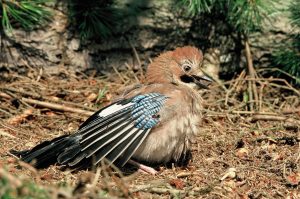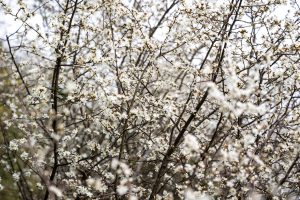In praise of the humble Dunnock
If there’s one little bird which tends to get overlooked in our countryside and gardens, it’s the Dunnock. Which is all a bit unfair on this most interesting and likable of species, and to make matters worse it even has to sometimes suffer the indignation of being called a ‘hedge sparrow’ – and a ‘sparrow’ it most certainly isn’t.
So let’s start by clearing up that last point. The Dunnock is in fact a member of the Accentor family, with the only other species in Europe being the Alpine Accentor – and, as the name suggests, you’d have to travel to the Alps to see one of those. Of course it’s the mix of brown and grey plumage which wrongly resulted in the hedge sparrow tag, but even a quick glance at the bill – the Dunnock’s is pointed and that of the House Sparrow is triangular – tells you that the two aren’t related.
Okay, so the lack of striking and colourful plumage hasn’t exactly helped the Dunnock get into the top five of most people’s favourite garden birds list, but how about its song? Ummmm… well, to be honest, that’s no great shakes either and ‘slightly tuneless jumble of high pitched notes’ would be an apt summary.
But despite all this I really like Dunnocks. I like the way there always seems to be at least one in my garden, and perhaps nervously moving in fits and starts below the cabbages hunting for insect and spiders, or perhaps darting out from underneath my car to take some sunflower hearts that I’ve scattered on the driveway for the hordes of Chaffinches. I also like the way that the very same species is there in a small patch of dwarf willow high on a wind-swept hillside, singing its wee heart out and cheering my day when there’s very few others birds on show.
So let’s hear it for the humble Dunnock: A bird which if often wrongly named, doesn’t have plumage which sets the heart racing, or indeed a song to inspire budding poets. But it’s a dependable little sole, generally minding its own business, but yet with the ability to entertain and, well, just be a welcome part of our garden bird spectacle.
So let’s start by clearing up that last point. The Dunnock is in fact a member of the Accentor family, with the only other species in Europe being the Alpine Accentor – and, as the name suggests, you’d have to travel to the Alps to see one of those. Of course it’s the mix of brown and grey plumage which wrongly resulted in the hedge sparrow tag, but even a quick glance at the bill – the Dunnock’s is pointed and that of the House Sparrow is triangular – tells you that the two aren’t related.
Okay, so the lack of striking and colourful plumage hasn’t exactly helped the Dunnock get into the top five of most people’s favourite garden birds list, but how about its song? Ummmm… well, to be honest, that’s no great shakes either and ‘slightly tuneless jumble of high pitched notes’ would be an apt summary.
But despite all this I really like Dunnocks. I like the way there always seems to be at least one in my garden, and perhaps nervously moving in fits and starts below the cabbages hunting for insect and spiders, or perhaps darting out from underneath my car to take some sunflower hearts that I’ve scattered on the driveway for the hordes of Chaffinches. I also like the way that the very same species is there in a small patch of dwarf willow high on a wind-swept hillside, singing its wee heart out and cheering my day when there’s very few others birds on show.
So let’s hear it for the humble Dunnock: A bird which if often wrongly named, doesn’t have plumage which sets the heart racing, or indeed a song to inspire budding poets. But it’s a dependable little sole, generally minding its own business, but yet with the ability to entertain and, well, just be a welcome part of our garden bird spectacle.


